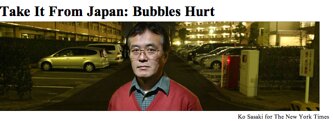The website of Michael Anti, one of China’s most provocative bloggers, have apparently been shut by MSN Spaces, following posts on a series of posts on the walkout by reporters at Beijing News and after Chinese blog service provider Bokee ran a column suggesting that authorities pay attention to Anti. Via ESWN.:
The Anti Blog Is Gone Upon information and belief, the Anti blog has been removed by MSN Spaces. For much of today, the message is that: “Space not available. This space is temporarily unavailable. Please try again later.” I have tried other MSN Spaces, but this is the only one not available. Similarly, Anti’s English blog is not available either.
I see two precipitating factors. The first relates to the three most recent posts at the blog. The oldest one was an announcement of the removal of the three senior editorial members of Beijing News. The next one urges Beijing News subscribers to call in and cancel their subscriptions (see copy in Chinese). The latest one tells current Beijing News workers to walk out of their jobs as a moral imperative (see copy in Chinese). At this time, the name Beijing News (=Xinjingbao) is banned from Chinese forums (i.e. you cannot bring up the subject and you cannot comment on it).
The second precipitating factor is most unfortunate, and it is described in detail in this post Good And Bad Things Happened To Mr. Anti. The Bokee columnist wrote that the government’s Internet supervisory department should be paying attention to Anti’s blog as well as MSN Spaces. Well, they did. Whether this is the true reason or not (and we will never know for sure), Bokee is going to go down in Internet history as calling in the Internet police to crack down on a blogger for exercising his constitutionally guaranteed freedom of speech and the police did just that, and the motivation of Bokee was commercial in nature (that is, they want to use the government’s security apparatus to damage MSN Spaces as a competitor). I know that this is one columnist’s opinion, but Bokee had better make it very clear that they did not support that opinion AND also they do not support the disappearance of the Anti blog.
Andrea notes that Anti’s English blog has also vanished.
Technorati Tags: asia, china, east asia, anti, censorship

 The article comes to a truly bizarre, only-in-China climax:
The article comes to a truly bizarre, only-in-China climax: Chinese Roswell: some thoughts …
Chinese Roswell: some thoughts …
 The key to this story is that despite everything, working abroad is considered a good deal. It’s one of the few ways to save some money to help their families back home. And only the “most loyal” North Koreans qualify, with their families left behind as hostages:
The key to this story is that despite everything, working abroad is considered a good deal. It’s one of the few ways to save some money to help their families back home. And only the “most loyal” North Koreans qualify, with their families left behind as hostages: In today’s China, we must say that it is much more open than that bygone era. Society has progressed, people have greater freedom and life is more prosperous. There are tall buildings everywhere, there are neon lights everywhere and there are the sounds of music everywhere. Compared to that bygone era, this seems to be a different world. Most people now live differently from back then, so why are people still nostalgic about that era?
In today’s China, we must say that it is much more open than that bygone era. Society has progressed, people have greater freedom and life is more prosperous. There are tall buildings everywhere, there are neon lights everywhere and there are the sounds of music everywhere. Compared to that bygone era, this seems to be a different world. Most people now live differently from back then, so why are people still nostalgic about that era? #2
#2 
 So yes: I don’t like our foreign workers, and like I said, I most certainly won’t like to dance with them in a club.
So yes: I don’t like our foreign workers, and like I said, I most certainly won’t like to dance with them in a club. Another associate professor from the same department, Ms Paulin Straughan, suggested the response may be due to the possibility that Singaporeans face fewer irritations. She said: “We have campaigns educating the public on social graces, such as the Keep Singapore Clean campaign. It may well be that these campaigns have worked.”
Another associate professor from the same department, Ms Paulin Straughan, suggested the response may be due to the possibility that Singaporeans face fewer irritations. She said: “We have campaigns educating the public on social graces, such as the Keep Singapore Clean campaign. It may well be that these campaigns have worked.”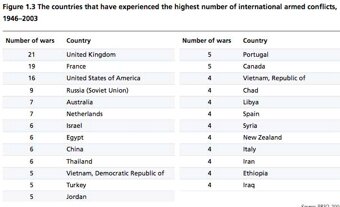
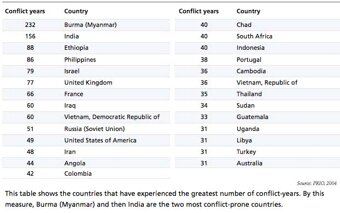
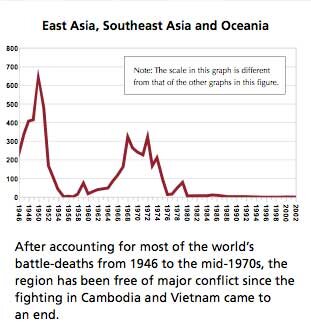
 It’s the sort of distinction that leaves you wondering whether to offer praise or pity: South Koreans worked longer hours last year than anyone else on the planet, 30 percent more than Americans and 65 percent longer than the French.
It’s the sort of distinction that leaves you wondering whether to offer praise or pity: South Koreans worked longer hours last year than anyone else on the planet, 30 percent more than Americans and 65 percent longer than the French.
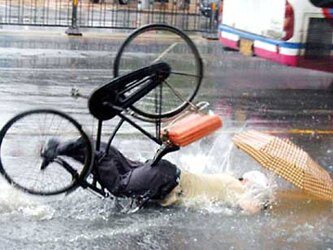
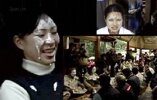
 I guess Day-After-Christmas sales are no longer a solely American phenomenon: the KMT has reportedly
I guess Day-After-Christmas sales are no longer a solely American phenomenon: the KMT has reportedly 

 Inside China, I would have liked to run an anonymous public opinion survey to ascertain how people feel, but that won’t happen, of course. So all is left to speculation. I would say that it is a function of one’s age and personal history. For the younger Chinese, it is likely that they have no idea who this person was. After all, they were 5 or 10 years old in 1989 and the subjects of Zhao Ziyang and the June 4 ‘incident’ have been excluded from the public discourse. As for those who were old enough in 1989 to know what went on, I can’t get a reading. For the majority of the country who are mostly rural peasants, they did not hear about Zhao Ziyang or the June 4 ‘incident’ back then, and it would have no material effect on them now. For those who were involved or paid attention at the time, I have no way to gauge the preponderance of opinions — a very tiny fraction have gone into exile and written a voluminous amount of protest materials; perhaps some are still despondent and angry; perhaps some have settled down in middle-class comfort; or perhaps others have even accept that what happened was necessary. I have no evidence about the distribution of these opinions.
Inside China, I would have liked to run an anonymous public opinion survey to ascertain how people feel, but that won’t happen, of course. So all is left to speculation. I would say that it is a function of one’s age and personal history. For the younger Chinese, it is likely that they have no idea who this person was. After all, they were 5 or 10 years old in 1989 and the subjects of Zhao Ziyang and the June 4 ‘incident’ have been excluded from the public discourse. As for those who were old enough in 1989 to know what went on, I can’t get a reading. For the majority of the country who are mostly rural peasants, they did not hear about Zhao Ziyang or the June 4 ‘incident’ back then, and it would have no material effect on them now. For those who were involved or paid attention at the time, I have no way to gauge the preponderance of opinions — a very tiny fraction have gone into exile and written a voluminous amount of protest materials; perhaps some are still despondent and angry; perhaps some have settled down in middle-class comfort; or perhaps others have even accept that what happened was necessary. I have no evidence about the distribution of these opinions.
